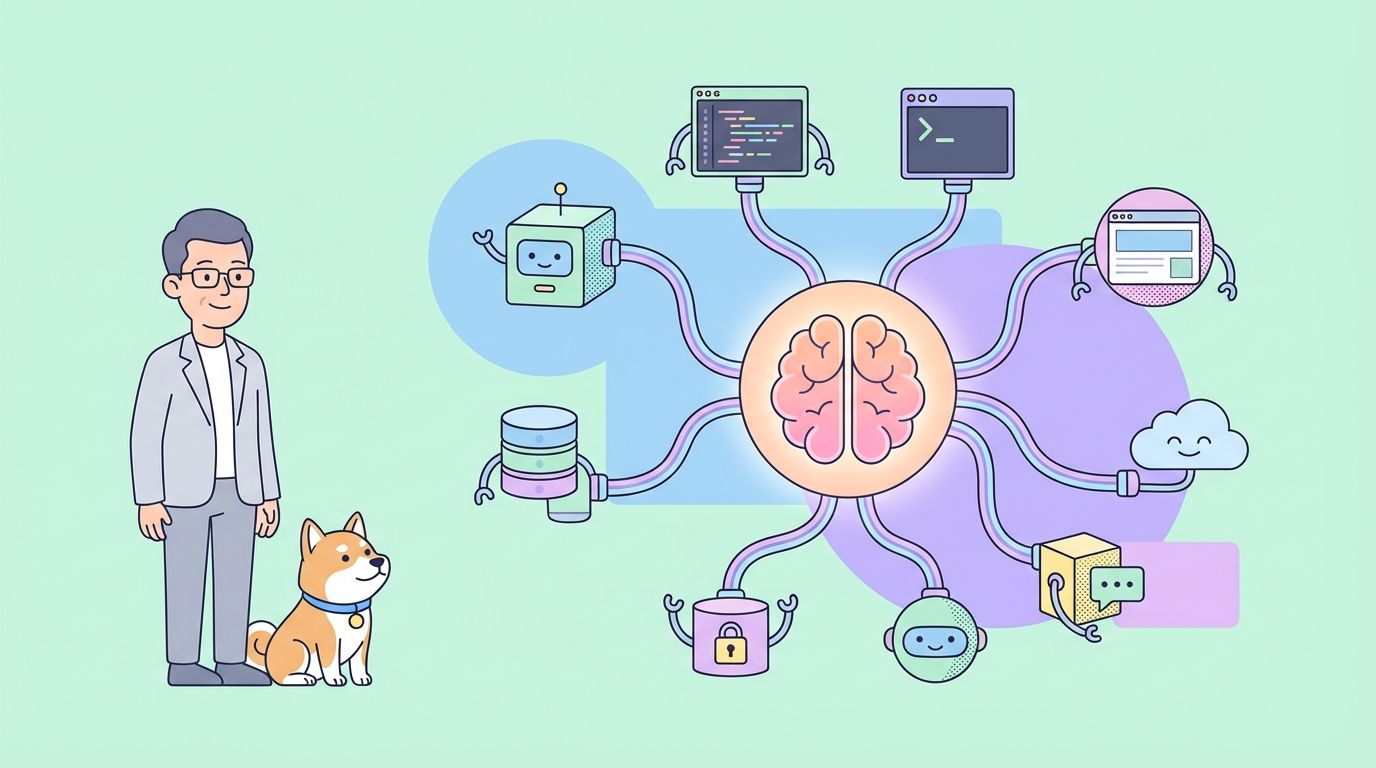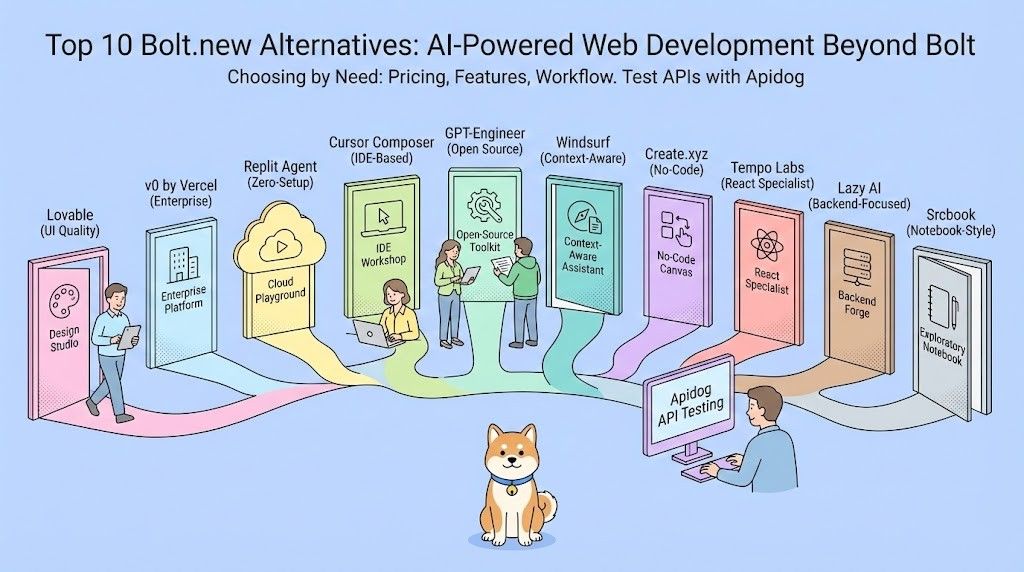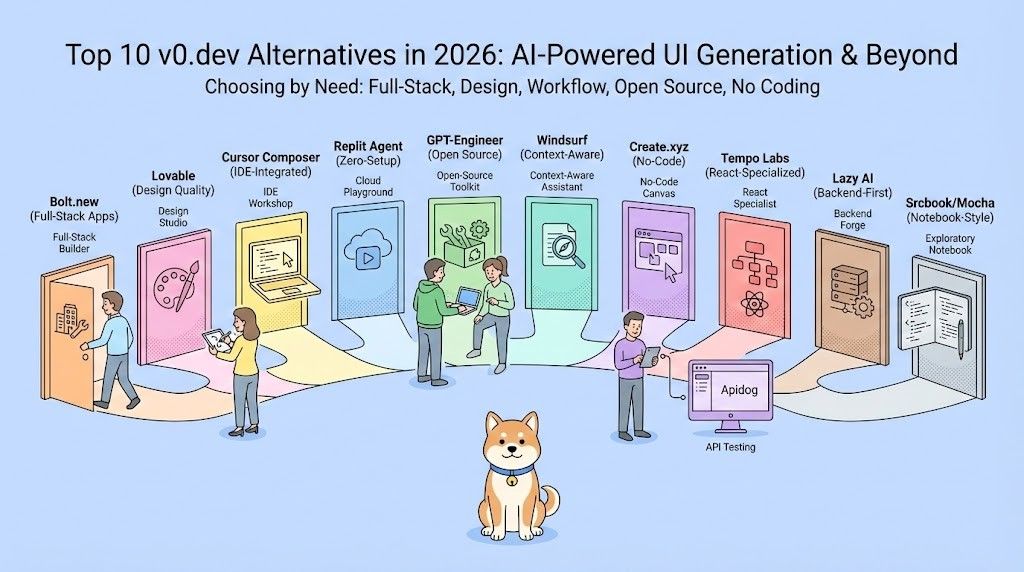Are you a fan of the Cursor Code editor but curious about other tools that might better suit your needs? Whether you’re an experienced developer or just dipping your toes into the world of AI-powered code editors, it’s always good to explore alternatives. This blog post will walk you through the top 9 Cursor AI alternatives, including some excellent open-source options. Each one brings something unique to the table, so you’re bound to find one that clicks with your workflow.
1. TabNine — The AI-Powered Autocompletion Prodigy
TabNine is one of the most popular AI-powered code autocompletion tools out there. It integrates seamlessly with many code editors, including VSCode, Atom, Sublime Text, and more. TabNine uses machine learning models trained on a wide variety of codebases, meaning it can predict and suggest entire lines or blocks of code with impressive accuracy.
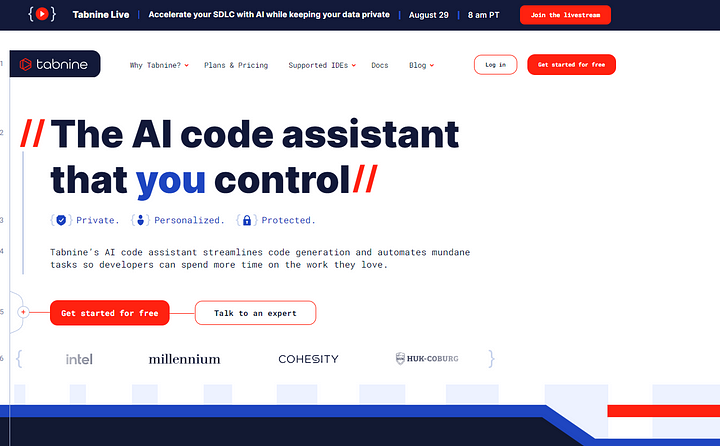
Why Consider TabNine?
- Language Support: Whether you’re coding in Python, JavaScript, C++, or even Rust, TabNine has got you covered.
- Ease of Integration: TabNine’s ability to integrate with almost any code editor makes it a versatile choice.
- Free and Paid Versions: TabNine offers a free version with basic features and a paid version with more advanced AI capabilities.
Where It Falls Short:TabNine’s free version, while powerful, doesn’t offer the full suite of features available in the paid version, which might be a limitation for some users.
2. Kite — The AI Assistant with a Strong Focus on Python
Kite is another AI-powered coding assistant that’s especially popular among Python developers. It offers intelligent code completions, documentation as you code, and even snippets.
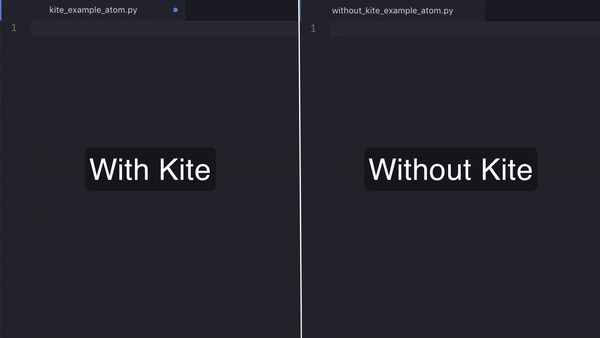
Why Consider Kite?
- Python Mastery: If Python is your main programming language, Kite’s optimizations for Python make it a strong contender.
- Real-Time Documentation: Kite provides documentation in real-time as you type, which can be incredibly helpful when you’re trying to understand unfamiliar code.
- Multilingual Support: While Kite shines with Python, it also supports JavaScript, Java, C++, and other languages.
Where It Falls Short:Kite has been criticized for its limited support of languages compared to TabNine, making it less versatile for developers who work across multiple languages.
3. GitHub Copilot — The AI Pair Programmer from the Future
GitHub Copilot has made waves in the developer community for its ability to generate entire functions, write boilerplate code, and even help with debugging. Built on OpenAI’s Codex model, it understands natural language prompts, making it a powerful tool for both beginners and seasoned developers.
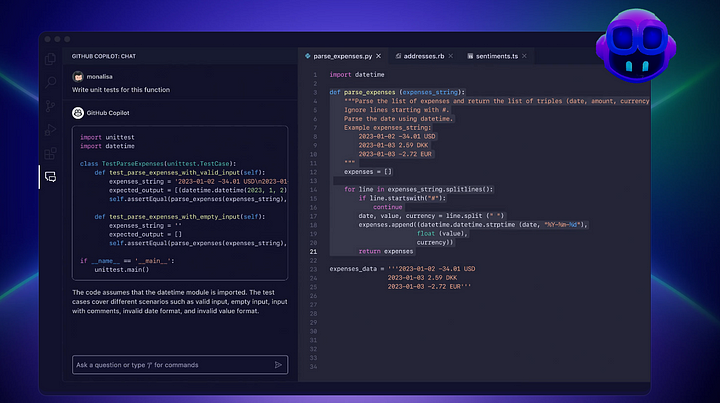
Why Consider GitHub Copilot?
- Natural Language Understanding: You can describe the code you want in plain English, and Copilot will generate it for you.
- Wide Language Support: From Python to Go, Copilot supports a wide array of programming languages.
- Continuous Learning: Copilot learns from public code repositories and evolves, ensuring it stays up-to-date with the latest coding practices.
Where It Falls Short:Copilot’s reliance on public code can sometimes lead to licensing concerns. Also, it requires a GitHub subscription after the trial period.
4. Codeium — The Open-Source Challenger
If you’re looking for a powerful, free, and open-source alternative, Codeium could be just what you need. Codeium provides AI-powered code suggestions, autocompletions, and even supports multiple languages.
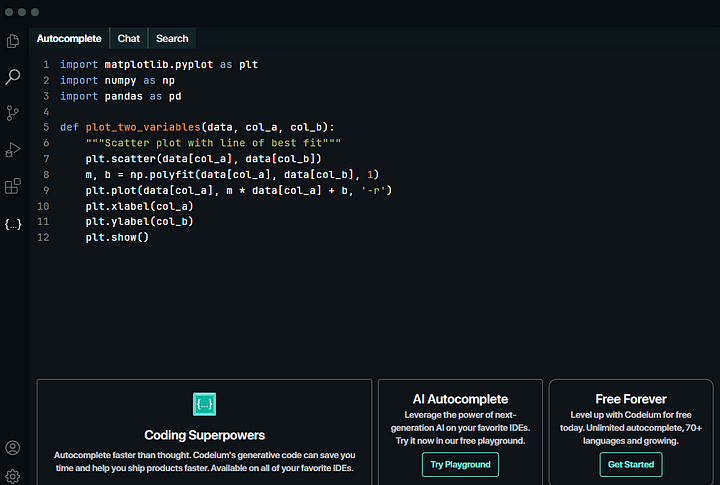
Why Consider Codeium?
- Open Source: Codeium’s open-source nature means you can customize it to fit your needs.
- Community Driven: With a strong community behind it, Codeium is constantly being improved and updated.
- Multilingual Support: Supports various languages, making it a versatile tool for developers.
Where It Falls Short:Being open-source, Codeium might not have the polished user experience that some proprietary tools offer.
5. OpenAI Codex — The Brain Behind GitHub Copilot
While GitHub Copilot is built on OpenAI’s Codex, Codex itself can be used independently for more advanced AI-powered coding. Codex understands and generates code in multiple programming languages, providing suggestions based on natural language inputs.
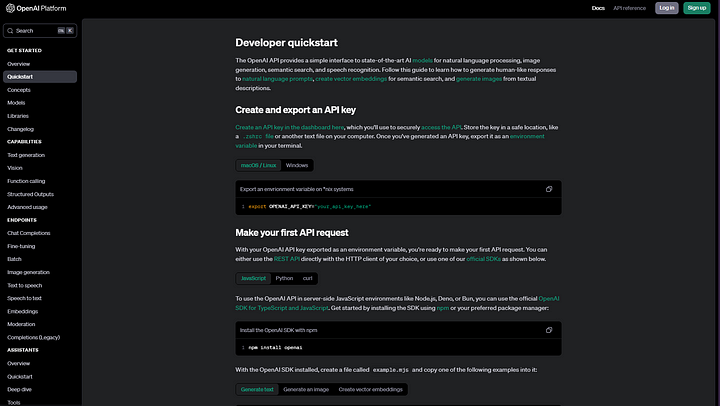
Why Consider OpenAI Codex?
- Flexibility: You can use Codex to build custom AI coding tools tailored to your specific needs.
- Advanced Features: Codex offers more advanced capabilities compared to pre-built tools like GitHub Copilot.
- Language Versatility: Supports dozens of programming languages, making it a universal tool for developers.
Where It Falls Short:Codex can be complex to set up and use, making it less accessible for beginners.
6. Intellicode — Microsoft’s AI-Powered Code Assistance
Microsoft’s Intellicode is a powerful AI code assistant integrated into Visual Studio and Visual Studio Code. It provides contextual recommendations, making coding faster and less error-prone.
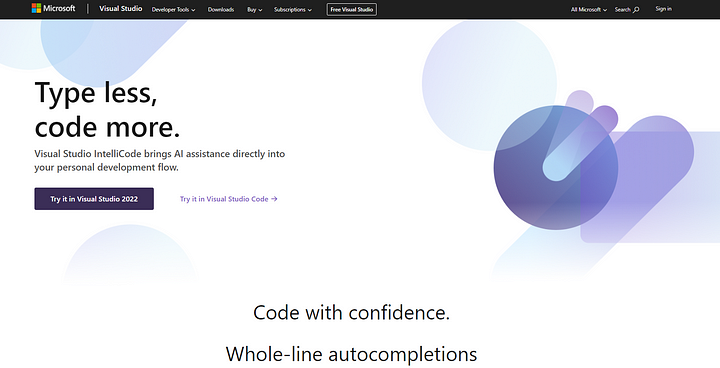
Why Consider Intellicode?
- Integration with Visual Studio: Intellicode’s deep integration with Visual Studio and VSCode makes it a natural choice for developers already using these IDEs.
- Team Training: Intellicode can be trained on your team’s codebase, providing more relevant suggestions.
- Support for Multiple Languages: From C# to Python, Intellicode offers support for various programming languages.
Where It Falls Short:Intellicode’s tight integration with Microsoft tools might make it less appealing to developers using other IDEs.
7. CodeT5 — The Transformer-Based AI Assistant
CodeT5 is a transformer-based model trained specifically for code-related tasks. It offers a range of features, including code completion, summarization, and even bug detection.
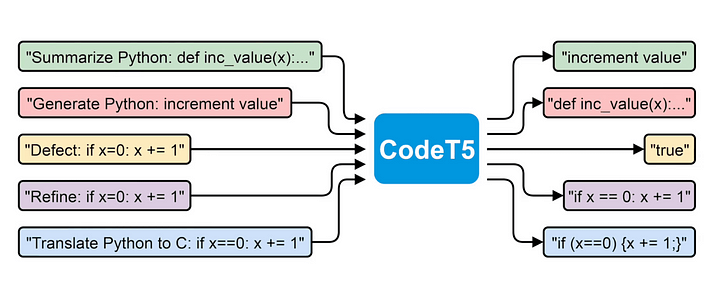
Why Consider CodeT5?
- Transformer Architecture: Built on state-of-the-art transformer models, CodeT5 provides high-quality code suggestions.
- Open Source: As an open-source tool, CodeT5 is flexible and customizable.
- Multifunctional: Besides code completion, CodeT5 can help with code summarization and bug detection.
Where It Falls Short:CodeT5’s setup and configuration can be a bit complex, which might deter less experienced developers.
8. Visual Studio IntelliSense — The Classic Code Autocompletion Tool
IntelliSense is Microsoft’s built-in code autocompletion tool, integrated into Visual Studio and Visual Studio Code. While it’s not as advanced as some AI-powered tools, IntelliSense remains a reliable choice for many developers.
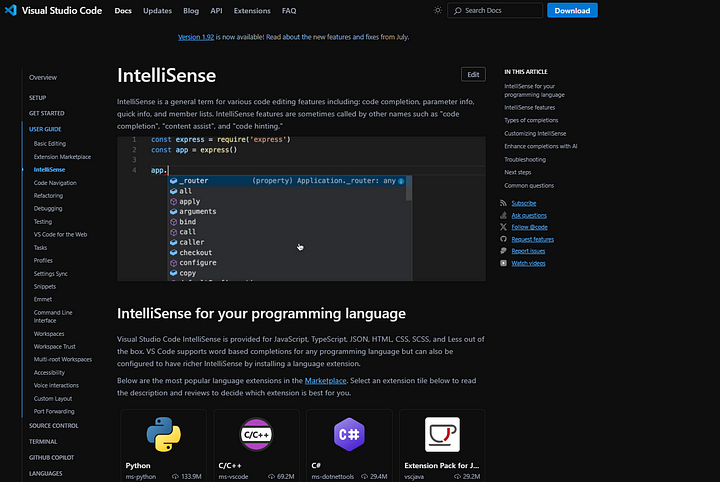
Why Consider IntelliSense?
- Deep Integration: IntelliSense is built into Visual Studio and VSCode, providing a seamless coding experience.
- Language Support: Supports a wide range of languages, making it a versatile tool.
- Familiarity: For developers already using Microsoft tools, IntelliSense requires no additional setup.
Where It Falls Short:IntelliSense doesn’t offer the same level of intelligence as newer AI-powered tools, which might make it less appealing for those looking for more advanced features.
9. Eclipse Che — The Open-Source Cloud IDE
Eclipse Che is more than just a code editor; it’s a cloud-based development environment that supports collaborative coding. It offers a range of plugins and extensions, making it highly customizable.
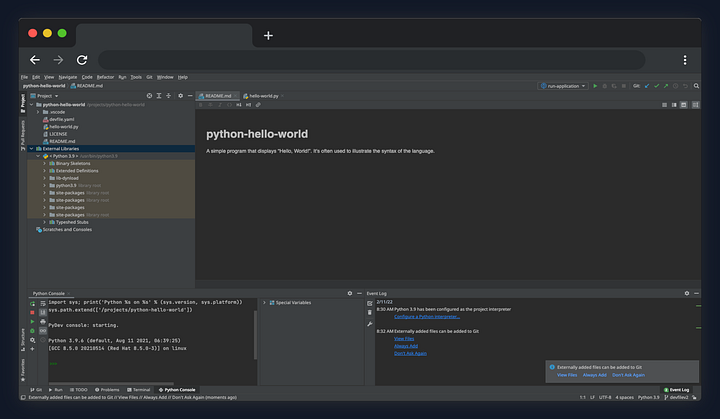
Why Consider Eclipse Che?
- Cloud-Based: Eclipse Che runs in the cloud, making it accessible from anywhere and allowing for easy collaboration.
- Open Source: Being open-source, Eclipse Che can be tailored to meet your specific needs.
- Extensibility: With a wide array of plugins and extensions, Eclipse Che can be transformed into a powerful development environment.
Where It Falls Short:The cloud-based nature of Eclipse Che might be a drawback for developers who prefer local development environments.
Supercharge Your AI Development with Apidog MCP Server
Now that we've explored the top 9 Cursor AI alternatives, let's introduce a game-changing tool that transforms how AI assistants work with your API specifications: Apidog MCP Server. This revolutionary tool bridges the gap between AI-powered code editors and your API development workflow, making your AI assistant incredibly more powerful and context-aware.
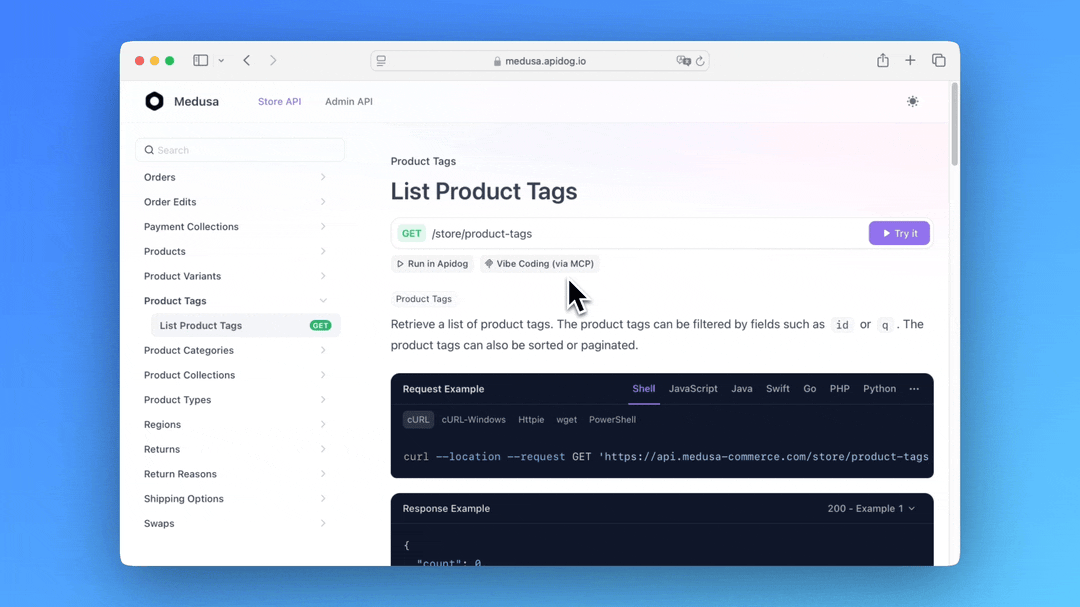
What is Apidog MCP Server?
The Apidog MCP Server allows you to use your API specification as a data source for AI-powered IDEs like Cursor. This means your AI assistant can directly access and work with your API specification, dramatically speeding up development and making your workflow more efficient.
Instead of manually copying API details or switching between tools, your AI assistant now has direct access to your complete API documentation, enabling it to generate more accurate, context-aware code.
Why Apidog MCP Server is a Game-Changer?
- AI-Powered Code Generation: Generate or modify code based on your actual API specifications. Ask your AI to "Generate Java records for the 'Product' schema" or "Create MVC code for the '/users' endpoint" and watch it work with your real API data.
- Intelligent API Integration: Your AI assistant can now understand your API structure, endpoints, schemas, and relationships, enabling it to suggest more relevant code completions and generate more accurate implementations.
- Seamless Workflow Integration: Works directly within Cursor and other MCP-compatible IDEs. No need to switch between tools or manually copy API details.
- Real-Time Updates: When your API specifications change, simply ask the AI to refresh to ensure it's working with the latest data.
How It Works with Cursor
Once configured, you can interact with your API specifications through natural language commands:
"Use MCP to fetch the API specification and generate Java records for the 'Product' schema"
"Based on the API specification, add the new fields to the 'Product' DTO"
"Generate all the MVC code related to the endpoint '/users' according to the API specification"The AI assistant will automatically fetch your API specification data and generate contextually appropriate code based on your actual API structure.
Choosing the Right Tool for You
Each of these Cursor AI alternatives has its own strengths and weaknesses. The best choice depends on your specific needs, coding style, and the programming languages you work with. If you're looking for a tool that integrates seamlessly with your existing workflow, consider tools like GitHub Copilot or Microsoft's Intellicode. If open-source is a priority, Codeium and CodeT5 are excellent choices.
The Future of AI-Assisted Development
The landscape of AI-assisted development is rapidly evolving. While traditional code completion tools like TabNine and GitHub Copilot have revolutionized how we write code, the next frontier lies in context-aware AI that understands your specific project requirements.
Apidog MCP Server represents this evolution, transforming your AI assistant from a generic coding helper into a specialized API development expert. By connecting your AI directly to your API specifications, you're not just getting code suggestions—you're getting intelligent, context-aware assistance that understands your project's unique structure and requirements.
Whether you choose Cursor, continue with your current AI-powered editor, or explore the alternatives we've discussed, consider enhancing your setup with Apidog MCP Server. It's the missing piece that can turn any AI coding assistant into a true API development partner.

